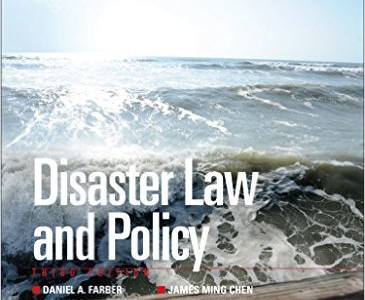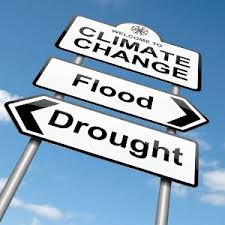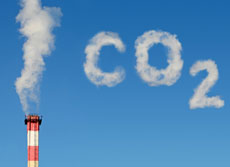Region: International
Building Climate Coalitions
A New Paper in Science Illuminates the Political Dynamics
Economists are used to evaluating policy instruments based on their economic effects. No surprise there. But a recent paper in Science argues that the political effects may be just as important. Perhaps it’s not a coincidence that three of the four authors are political scientists; the fourth is Eric Biber, a frequent contributor to this …
Continue reading “Building Climate Coalitions”
CONTINUE READINGDisaster Law and Policy
A new textbook on the emerging field of Disaster Law.
I’m delighted to announce the publication of the third edition of Disaster Law and Policy. Although I might not normally use this blog to promote a new book, I’d like to think in this case this is more than just shameless self-promotion. That’s for two reasons: the lion’s share of the credit for the improvements …
Continue reading “Disaster Law and Policy”
CONTINUE READINGThe Shadow Price of Carbon
Merging Cost-Benefit Analysis and Feasibility Analysis
The U.S. government has devoted a lot of time and effort to estimating the social cost of carbon. This is basically a standard exercise in cost-benefit analysis, following a familiar three-step process: 1. Impacts. Figure out the physical impacts of the emissions. This involves setting up some emissions scenarios and then running computer simulations to …
Continue reading “The Shadow Price of Carbon”
CONTINUE READINGGlobal Warming and Changing Weather
Why DOESN’T global warming just raise the temperature everywhere a little bit?
The amount of global warming that scientists are predicting doesn’t seem like that big a deal — maybe about 4 degrees Fahrenheit if we control emissions, up to maybe 12 if we don’t. But as I’ve said a hundred times — and the experts have said a lot more often than that — we won’t …
Continue reading “Global Warming and Changing Weather”
CONTINUE READINGA Case of Reverse Causation?
Tomorrow’s Emission Determine Today’s Social Cost of Carbon
Here’s the weird thing: the social cost of carbon today, depends significantly on the year-by-year emissions of carbon in the future, which we obviously don’t know. (Because it depends on our own future actions!) It takes some explanation to show why that’s true and how it matters. If you know a bit about climate policy, you know …
Continue reading “A Case of Reverse Causation?”
CONTINUE READINGWhy Paris won’t be Copenhagen
Christiana Figueres, head of the UN climate convention, makes the argument at UCLA
As Executive Secretary of the UN Framework Convention on Climate Change since 2010, Christiana Figueres jokes that it has been her job to “put 195 countries in a better mood” after the overhyped Copenhagen talks in 2009. The Emmett Institute hosted a lunch at UCLA with Ms. Figueres earlier this week, in which she assured California stakeholders that this year’s Paris …
Continue reading “Why Paris won’t be Copenhagen”
CONTINUE READINGDoes Pope Francis Really Hate California’s Cap-And-Trade Program?
Encyclical take a negative view that may be misplaced
As Dan and Jonathan noted, the Pope weighed in on Thursday with strong moral arguments in favor of addressing climate change. But in his landmark encyclical, he apparently bashed cap-and-trade as a means of addressing carbon pollution: “The strategy of buying and selling ‘carbon credits’ can lead to a new form of speculation which would …
Continue reading “Does Pope Francis Really Hate California’s Cap-And-Trade Program?”
CONTINUE READINGCaritas and Climate Change
Pope Francis has linked the issue of climate change with compassion for the global poor.
Laudato Si’, the new encyclical on climate change, is receiving global attention because of its potential impact on political debates over climate change. Part of the Pope’s message seems to be based on the idea that humans have a duty to care for natural world, a rereading of the traditional assumption that God gave humans …
Continue reading “Caritas and Climate Change”
CONTINUE READINGPope Francis Channels Mike Tyson
Who Will Get the Movie Rights to the Encyclical on Climate Change?
Many hope that the Pope’s impending encyclical on climate change (and inequality) will change the debate on both topics. Certainly right-wing Catholics are getting nervous about it. But who will get the movie rights? I don’t know, but here’s a potential trailer. What does this have to do with Mike Tyson? Just watch:
CONTINUE READINGThe Next Six Months
A half-dozen crucial developments will shape environmental policy for years to come.
The next six months will be unusually important in environmental law. There are six key areas to keep an eye on: 1. The Paris climate talks. The world’s governments meet every year in December as part of continuing negotiations on climate issues. This year’s meeting will be the most critical since Copenhagen, six years ago. The …
Continue reading “The Next Six Months”
CONTINUE READING













